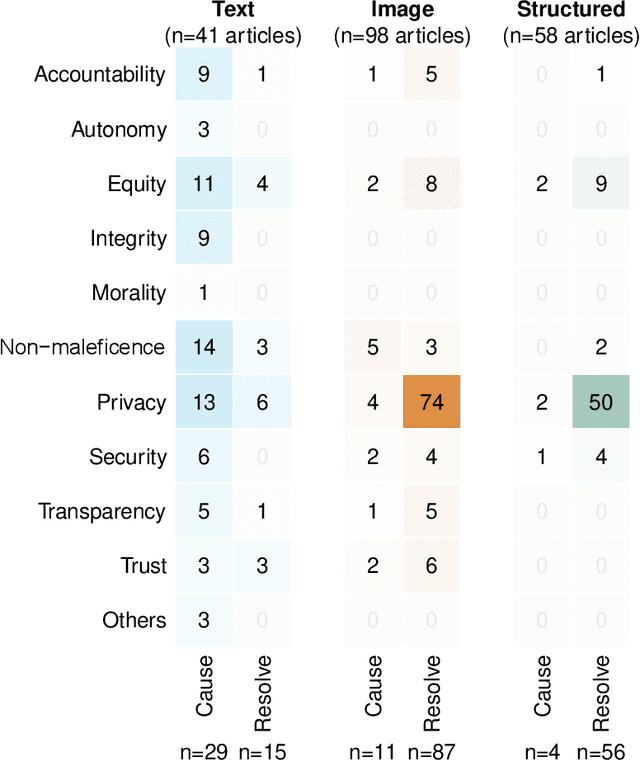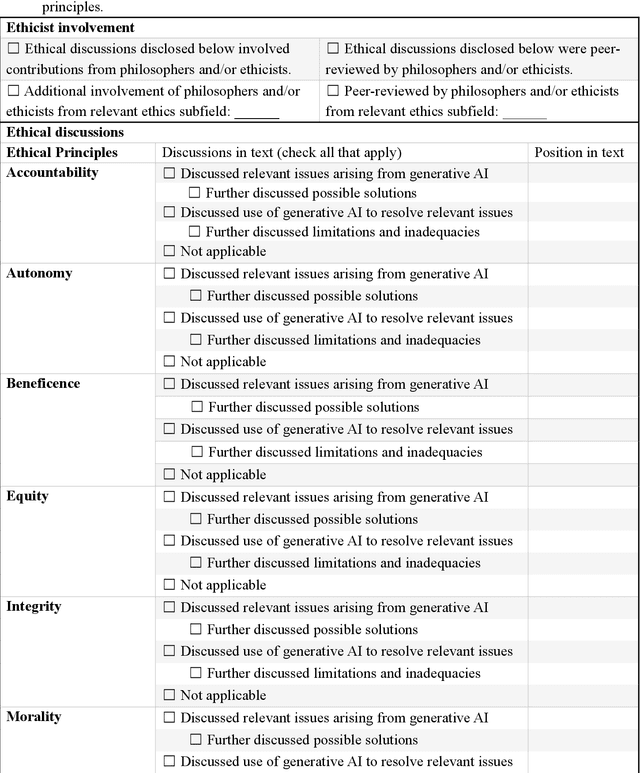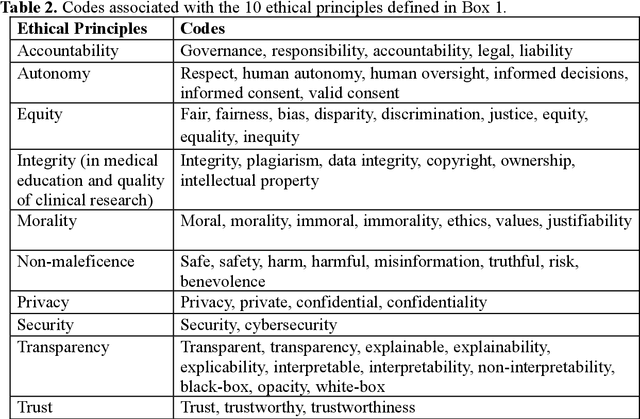Vaishaanth Nagaraj
Generative Artificial Intelligence in Healthcare: Ethical Considerations and Assessment Checklist
Nov 02, 2023


Abstract:The widespread use of ChatGPT and other emerging technology powered by generative artificial intelligence (AI) has drawn much attention to potential ethical issues, especially in high-stakes applications such as healthcare. However, less clear is how to resolve such issues beyond following guidelines and regulations that are still under discussion and development. On the other hand, other types of generative AI have been used to synthesize images and other types of data for research and practical purposes, which have resolved some ethical issues and exposed other ethical issues, but such technology is less often the focus of ongoing ethical discussions. Here we highlight gaps in current ethical discussions of generative AI via a systematic scoping review of relevant existing research in healthcare, and reduce the gaps by proposing an ethics checklist for comprehensive assessment and transparent documentation of ethical discussions in generative AI development. While the checklist can be readily integrated into the current peer review and publication system to enhance generative AI research, it may also be used in broader settings to disclose ethics-related considerations in generative AI-powered products (or real-life applications of such products) to help users establish reasonable trust in their capabilities.
 Add to Chrome
Add to Chrome Add to Firefox
Add to Firefox Add to Edge
Add to Edge